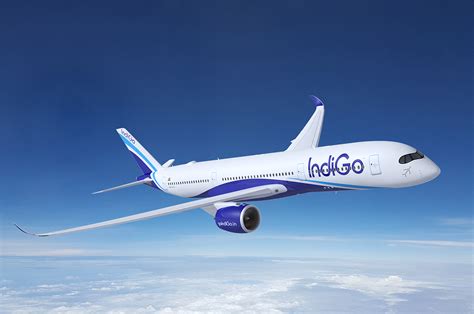
taxes
Niger, Liberia, Guinea Bissau, Senegal, Bangui, Sierra Leone, Republic of Congo, and Nigeria top the list of African countries with high airport taxes. These airport taxes are as high as some European countries that have met stiff resistance from the International Air Transport Association (IATA).
- Niamey, Niger Republic tops the list by charging passengers $162 on regional departure in African airports, followed by Monrovia (Liberia) $145; Guinea Bissau $137; Dakar, Senegal $116; Douala, Cameroon $115; Bangui $111; Freetown, Sierra Leone $109 and Nigeria $100.
- International travelers at Bamako, Mali, Antananarivo, Madagascar, Cotonou, Benin Republic, Kinshasa, Zaire pay $99; $91, $88, $77 respectively. In Accra, Ghana it costs $77, N’djamena $68, Djibouti $67, Cairo 467, Lome, Togo $62, Entebbe, Uganda is $57. Charges by other African nations oscillate between $50 and $3.
- Maseru, Lesotho has the lowest airport tax of $3 followed by Tripoli, Libya $4, Lubombo, Eswatini $7, Khartoum, Sudan $8, Gaborone, Botswana $11 and Tunis, Tunisia $11.
- In Central and Western Africa, 10 out of 23 airports, which is almost half, charge more than $100. Thus, the two regions represent only 20% of the global traffic to/from Africa. Most of the Northern African airports which represent 35% of the traffic, charge less than $50.
- Central and Western African airports have the highest passenger taxes and fees, which vary from $164.9 in Niamey to $17.1 in Ilha Do Sal.
The five most expensive in Western Africa charge above $100. Passengers in North African airports enjoy the lowest amounts. Cairo charges $67 as passenger taxes and fees, while Khartoum charges only $8.2.
Comparison with other regions
While the average amount of passengers paid taxes and fees in Africa is $ 64, passengers are charged $30.23 in Europe and $29.65 in the Middle East despite the fact that traffic is much more significant in these regions
In Europe, only one airport charges passengers more than $100, and four charges more than $50. The reason for this high amount in London is the Air Passenger government tax, which is GBP 78 (USD 101) for long-haul flights.
Airports in Europe charge less than in Africa in terms of taxes and fees on arrival and transfer. The average amount of transfer taxes and fees in Africa is $36.02 compared to $17.55 in Europe. Taxes and fees on arrival are $8.81 in Europe, while $12.32 in Africa.
While airlines attempt to offer low fares to passengers, taxes and fees can bring the total price of a ticket to more than double the base fare. Given the low purchasing power in Africa, it is urgent to assess the issue of high taxes and fees, to stimulate the demand and make air transport affordable to African citizens.
Other extraneous airport charges in Africa
Apart from passengers taxes that are levied directly on the ticket, airlines have to face many other charges related to their operations at the airport level. Some of them are landing, noise, parking, Common User Terminal Equipment (CUTE), Jetway charge, passenger bus, lighting, counter, fire fighting and prevention, check-in, ground power unit, ground handling, follow-me, hangar, housing, terminal, towing and push-back
Mogadishu, Somalia is the most expensive airport for airlines charges, with more than $2,000 for an international flight, while a busy airport like Algiers charges $158 in the same conditions. The average amount of charges paid is $624, but 53% of the airports are charging less than $ 600.
Three airports in Africa charge below $50: Maseru, Khartoum, and Manzini. From the analysis, it can be seen that the busiest airports are among the cheapest. like Johannesburg, Addis Ababa, Nairobi, Algiers charge less than the average.
IATA faults move to raise taxes
Director-General of IATA, Willie Walsh, at a virtual meeting monitored by AirInsight on Wednesday picked out Schipol Airport describing the action to raise airport charges by 37 percent in the middle of the COVID-19 pandemic as “irresponsible”. Walsh further stated that it is insulting that the airport was positioning a token five percent reduction in their demands (originally 42%) as a response to the needs of their customers.
“It is nonsense that most of the airports that have increased airport taxes/ charges are justifying the increase to encourage a more sustainable aviation sector. Penalizing airlines with higher airport charges does nothing to move the sector towards its net-zero goals. The profitability of the industry is way too small and profit almost non-existent. They get taxed because they are looking at the revenue line rather than the profitability.”
The IATA chief equally did not spare other nations that have raised airport charges particularly African nations whom he said see taxes as purely a source of revenue. According to Walsh, “taxation is huge, costs of operation, which makes the cost of profits marginal or nonexistent. I think what they do is to look at the revenue line, but they failed to recognize costs associated with operations in this industry.”
Airlines raise the alarm
A worker with a European carrier, who spoke to AirInsight on condition of anonymity, lamented that the high cost of operations, high government taxes, and airport authorities made airfare to Africa from many parts of the world to be extremely expensive. The source further stated that most times, the costs are passed to travelers, stressing that airlines are burdened by the huge cost of operations in the continent.
State of the African region
The aviation industry has a particular fiscal regime. According to the International Civil Aviation Organisation (ICAO) regulations, fuel, which represents at least 24.7% (IATA WATS 2019) of African airlines’ operational costs, should not be taxable. However, many other specific taxes and fees are applied to passengers.
According to The World Tourism Organization (UNWTO), 67 million international tourists visited Africa, bringing in a total receipt of USD 38 billion in 2018. The contribution of travel and tourism in the global Gross Domestic Product (GDP) is around $81 billion, which is greater than automotive manufacturing, health, and banking, showing the importance of this sector for the African economy.
Views: 180



